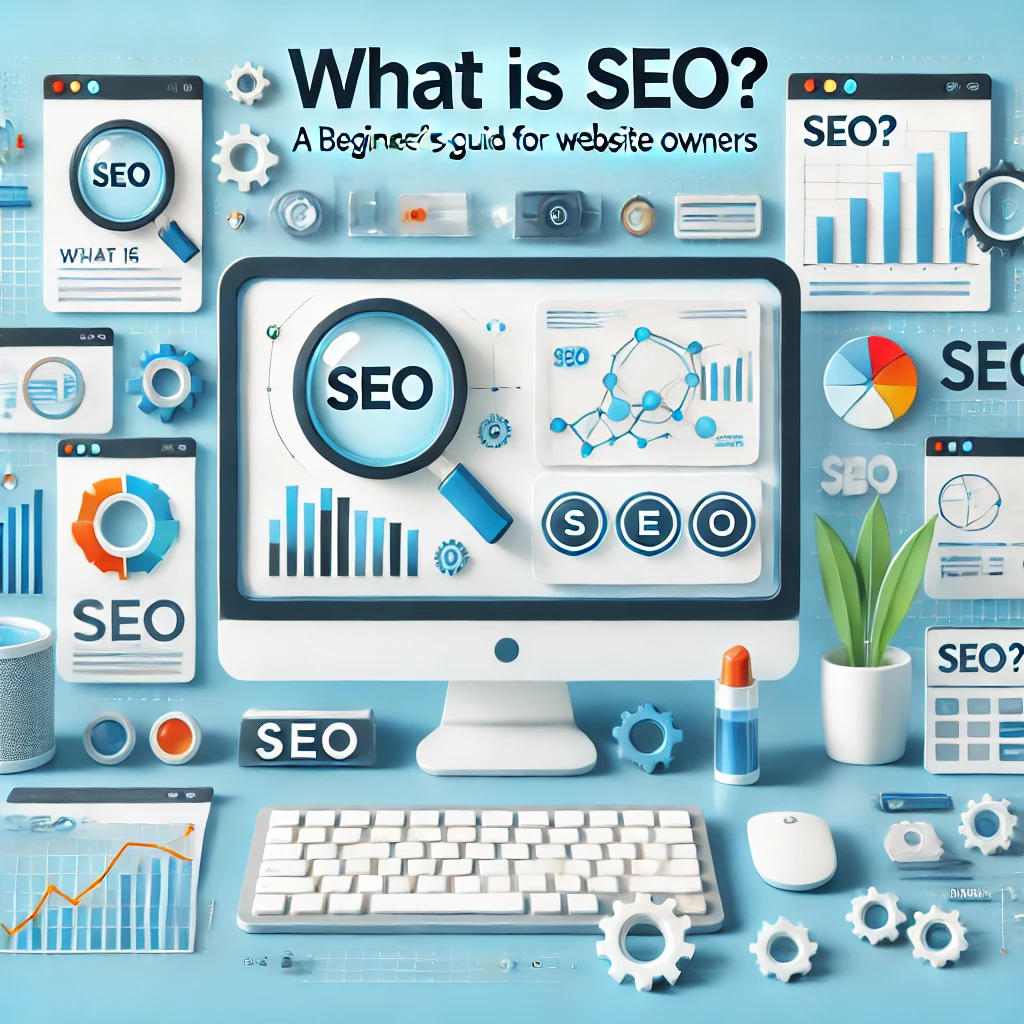If you’ve ever wondered how some websites magically appear on the first page of Google, the answer lies in three powerful letters: SEO. Whether you’re a blogger, small business owner, or web designer, understanding SEO is a must if you want your website to be seen and grow organically.
In this beginner-friendly guide, I’ll break down what SEO is, why it matters, and how you can get started—no tech jargon, just real talk.

What is SEO?
SEO stands for Search Engine Optimization. It’s the process of optimizing your website so that it ranks higher on search engines like Google, Bing, or Yahoo when someone searches for something related to your content.
Imagine you run a website about dog grooming in Lagos. If someone searches “best dog grooming in Lagos,” and your site shows up on page one—that’s good SEO at work.
Why Does SEO Matter?
Think about your own behavior: how often do you click on the second page of Google search results? Hardly ever, right?
Here’s why SEO is crucial:
- More visibility = more clicks
- More clicks = more potential customers
- It’s free traffic—unlike paid ads
- Builds trust and credibility for your brand
Basically, good SEO is like having a 24/7 salesman promoting your website—without you lifting a finger.
3 Key Elements of SEO
Let’s break SEO down into three parts you can understand:
1. On-Page SEO
This is everything you do on your website:
- Using the right keywords in your content
- Writing great titles and meta descriptions
- Organizing content with proper headings (H1, H2, etc.)
- Internal linking (linking to other pages on your site)
2. Off-Page SEO
This is what happens outside your site:
- Getting backlinks (when other sites link to yours)
- Social shares and mentions
- Online reviews and reputation
3. Technical SEO
This is the “behind-the-scenes” stuff:
- Site speed
- Mobile-friendliness
- Secure connection (HTTPS)
- Clean URL structure
You don’t need to be a tech guru—but knowing the basics helps.
How to Get Started with SEO (Even as a Beginner)
Here are simple steps to begin optimizing your site:
1. Find the Right Keywords
Use free tools like:
- Google Keyword Planner
- Ubersuggest
- Answer the Public
Look for keywords that your audience is searching for (e.g., “affordable website design in Nigeria”).
2. Create Helpful, Quality Content
Google loves useful content. Write articles, how-to guides, or FAQs that answer real questions.
3. Optimize Your Pages
Add keywords naturally to:
- Title tags
- Headings
- URL slugs
- Alt texts for images
4. Make Your Website Mobile-Friendly and Fast
Use tools like Google PageSpeed Insights to check your speed and get suggestions.
5. Track Your Progress
Set up Google Analytics and Google Search Console to see how your site is performing.
Our Conclusion
SEO doesn’t happen overnight, but the results are long-lasting. If you stay consistent with good practices, your website will become more visible, more trusted, and more profitable.
Ready to dive deeper into SEO? Stay tuned for my next post: “Top 5 Free SEO Tools You Should Be Using in 2025.”


[…] What is SEO? A Beginner’s Guide for Website Owners […]